Understanding Addiction Beyond the Individual
Addiction rarely affects the individual alone; it reverberates through the familial fabric, entangling loved ones in a web of emotional turmoil, financial strain, and altered dynamics. As the facade of normalcy shatters, family members are thrust into roles and emotional states that can hinder both the recovery process and their own well-being. Addressing addiction as a family disease means exploring these interconnected experiences to promote healing and resilience.
Understanding the Familial Impact of Addiction
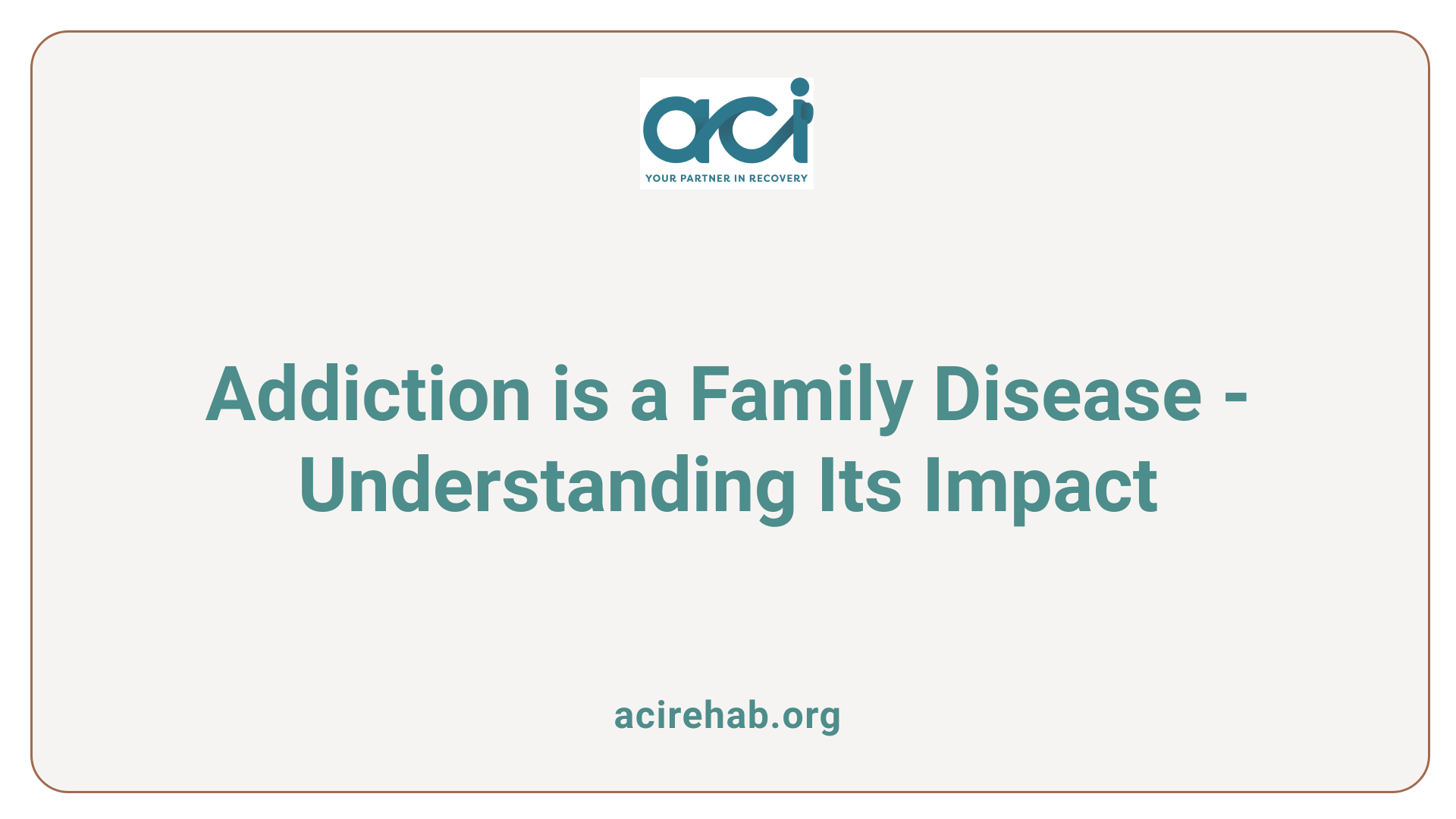
What does it mean that addiction is a family disease?
Addiction is often referred to as a family disease because its impact extends far beyond the individual struggling with addiction. It affects family members emotionally, physically, and socially. For instance, approximately 1 in 5 children grow up in homes where a parent abuses drugs or alcohol, which often leads to emotional and behavioral issues that can persist into adulthood. This includes poor self-image, anxiety, and a higher likelihood of developing their own addiction problems later in life.
The Ripple Effect on Children and Family Roles
The presence of addiction often leads to significant changes in family dynamics. An alarming rise in the number of children being raised by grandparents—growing from 2.4 million in 2000 to 4.9 million in 2010—can be attributed to parental substance abuse.
In families grappling with addiction, roles can shift dramatically. For example, children may take on caregiving responsibilities, a phenomenon known as ‘parentification,’ which can hinder their own development. The emotional burden Family systems often experience includes roles such as the enabler, the hero, or the scapegoat, all of which can perpetuate dysfunctional dynamics.
In summary, familial involvement is crucial in recovery, as family members can significantly influence the addicted individual’s journey toward rehabilitation.
Navigating Family Roles in Addiction
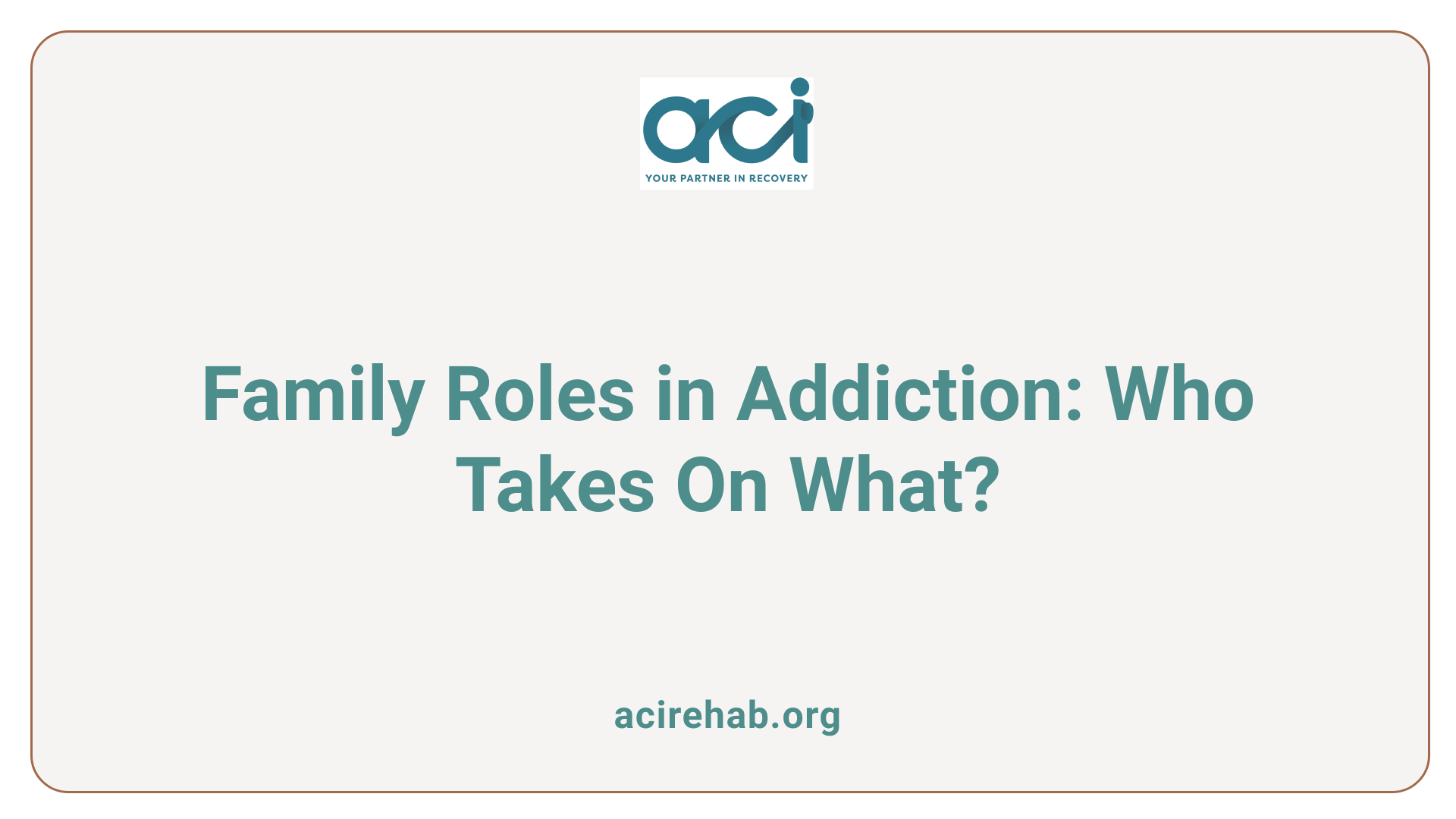
What roles do family members typically assume in a household affected by addiction?
In households grappling with addiction, the dynamics can often resemble a complex web of roles that family members adopt in response to the challenges posed by substance abuse. The primary role is typically occupied by the addict, who struggles with their substance use. However, the ramifications of addiction extend far beyond the individual, leading others to assume various roles:
- Enabler/Caretaker: This person often shields the addict from the consequences of their behavior, inadvertently allowing the addiction to persist.
- Hero: The family member who tries to rectify the situation and make the family proud, often feeling immense pressure to succeed.
- Scapegoat: This individual may act out in defiance or frustration, diverting attention from the addict.
- Mascot: The family clown who tries to relieve tension through humor, masking their own pain.
- Lost Child: This family member tends to withdraw from the family dynamics, avoiding conflict and chaos.
These roles can lead to emotional difficulties, fostering instability within family relationships and disrupting daily functioning. The complexities of these dynamics can create an environment filled with confusion and strain, impacting both mental and physical health across the family.
How does addiction affect family members emotionally?
Emotional fallout is a common consequence for family members in situations involving addiction. Feelings of guilt, shame, and resentment emerge as loved ones grapple with the effects of the addiction. Many family members experience:
- Anxiety: A constant state of worry about the addicted family member’s well-being and behaviors.
- Anger: Frustration directed at the addict, other family members, or themselves for feeling powerless over the situation.
- Shame: Embarrassment stemming from societal stigma surrounding addiction, leading to social isolation.
These emotional challenges can disrupt familial harmony, ultimately necessitating supportive intervention and therapy to ayuda families confront these dynamics and foster healthier relationships. By engaging in family education and therapy, members can start to break the cycle of dysfunction and promote a path toward recovery for all involved.
Emotional and Psychological Effects on Families
What are some of the emotional and psychological effects of addiction on family members?
The emotional landscape of families impacted by addiction is complex and often filled with turmoil. Family members frequently experience feelings of anger, guilt, shame, and frustration as they navigate the challenging dynamics introduced by a loved one’s substance use disorder. This emotional burden can lead to isolation, as family members may withdraw from friends and community due to stigma.
Key Emotional Responses
- Guilt and Shame: Many family members blame themselves for their loved one’s addiction, leading to profound guilt. This can hinder their ability to seek help or support.
- Fear and Anxiety: Unpredictability in the behavior of the addicted individual fosters a sense of insecurity that heightens anxiety among family members, especially children.
- Resentment: As responsibilities shift and a disproportionate burden is placed on certain family members, feelings of resentment can build, further straining relationships.
Psychological Stress and Trauma
Addiction also inflicts psychological trauma that can leave lasting scars on family members. The constant stress of living with an addict may contribute to physical health issues such as high blood pressure and anxiety disorders. Moreover, children raised in such environments are often deprived of secure attachments, making them susceptible to developing their own mental health issues down the line.
Impact on Children
- Developmental Challenges: Children may feel compelled to take on caregiving roles, a phenomenon known as ‘parentification,’ which can negatively impact their own development.
- Behavioral Issues: Exposure to addiction can lead to emotional instability, behavioral problems, and a higher susceptibility to substance use disorders in adulthood.
In summary, the emotional and psychological effects of addiction extend far beyond the individual, permeating the entire family system, requiring comprehensive approaches to healing.
The Critical Role of Family in Recovery
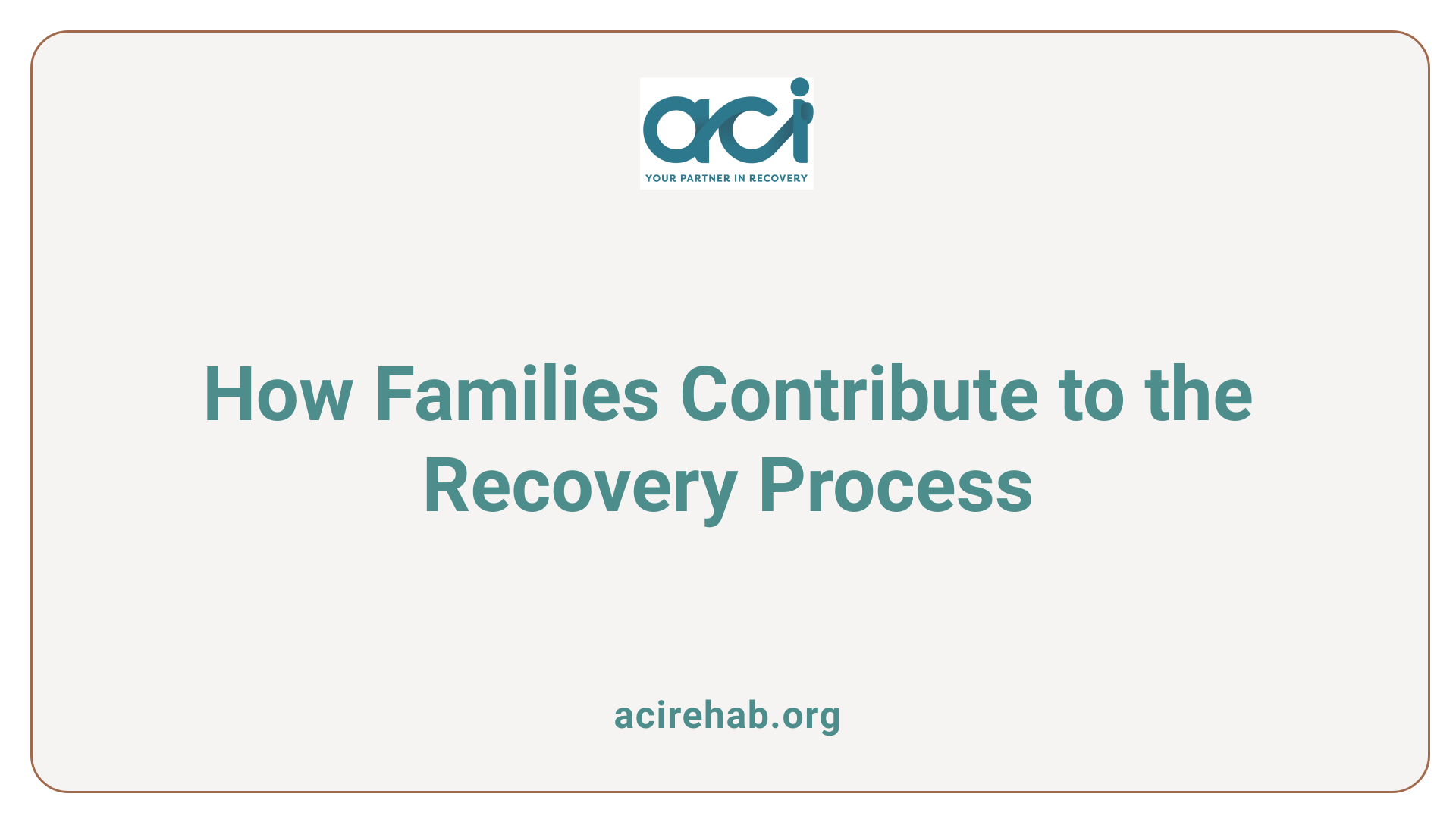
How is the involvement of family important in the recovery process from addiction?
The involvement of family is crucial in the recovery process from addiction as it provides essential emotional and moral support for the individual. Families can foster a supportive environment that encourages accountability and healthy behaviors, significantly impacting the recovering person’s motivation and commitment to sobriety.
Family members often undergo their own emotional turmoil when dealing with a loved one’s addiction. By engaging in educational programs, they can better understand addiction and mitigate enabling behaviors, which can otherwise hinder recovery. Support from family reinforcement helps reduce feelings of isolation, therefore enhancing the recovery chances for the individual.
Benefits of Family Support in Recovery
- Emotional Support: Family can offer comfort and understanding during challenging times.
- Accountability: Positive family dynamics encourage individuals to take responsibility for their actions.
- Improved Communication: Open dialogue can break the stigma surrounding addiction, fostering healthier relationships.
- Unified Participation: Families working together in therapy sessions create a stronger support network, benefiting recovery for everyone involved.
Overall, active family participation not only aids the individual in recovery but also promotes healing and resilience within the entire family unit. The emotional support and stability that family can provide are instrumental in navigating the complexities of addiction and establishing a foundation for lasting recovery.
Coping and Moving Forward
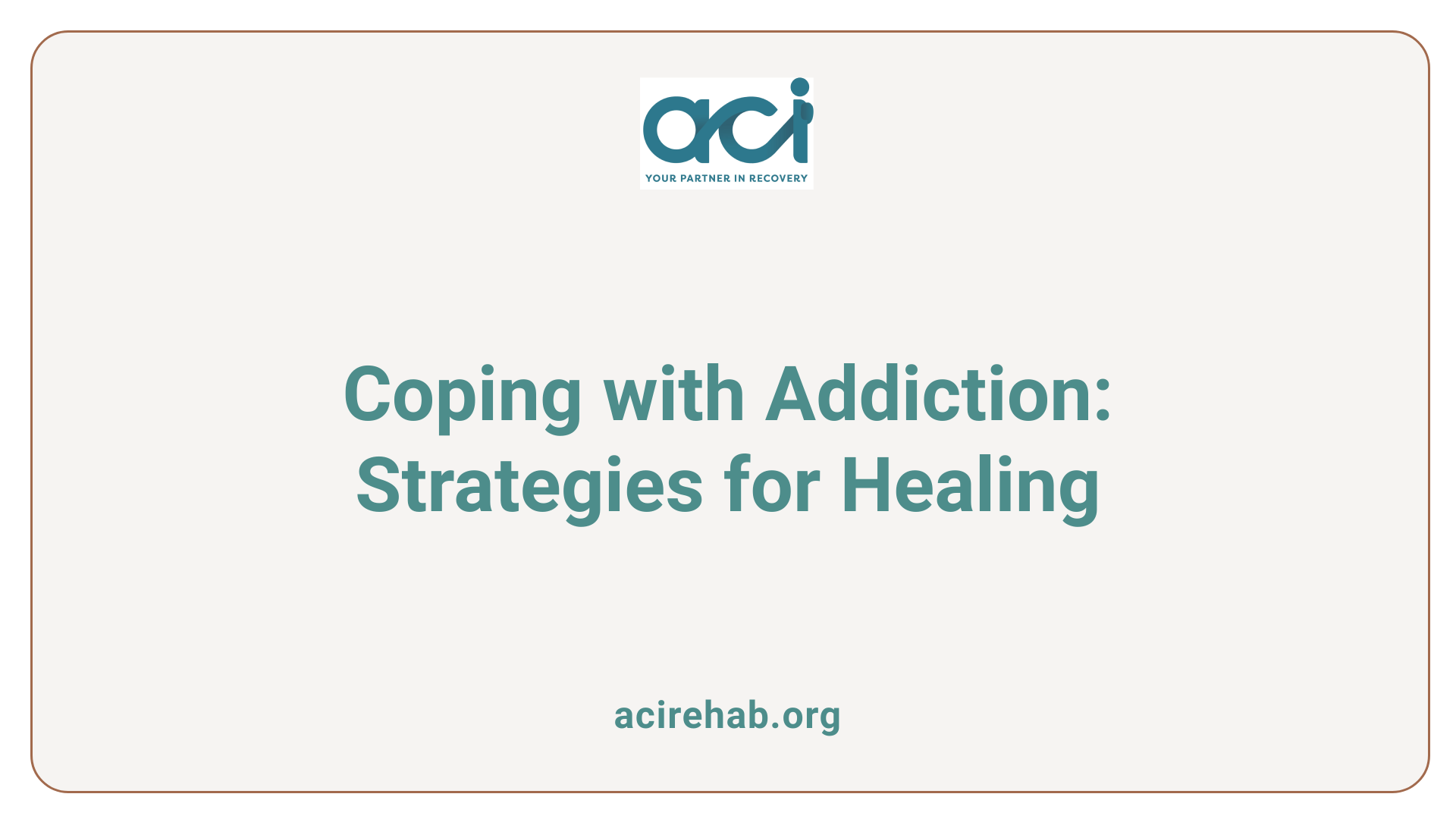
The 3 C’s for Families
In navigating the complexities of addiction within a family, it’s essential for family members to remember the ‘3 C’s’: they did not Cause the addiction, they cannot Control it, and they cannot Cure it. This understanding can help alleviate some of the guilt and frustration often felt by family members. Recognizing that addiction is a chronic disease makes it crucial for families to focus on their own mental health and wellbeing rather than taking on the burden of the addicted person’s struggles.
Coping Mechanisms
To effectively cope with the implications of addiction, families can adopt various strategies. Here are some mechanisms that may prove beneficial:
- Open Communication: Establishing honest dialogue can reduce secrecy and shame. This supports healing through shared understanding.
- Support Groups: Organizations like Al-Anon and Nar-Anon provide spaces for family members to connect with others facing similar challenges, improving emotional support and community.
- Therapy: Engaging in family therapy helps address dysfunctional dynamics, enabling families to cultivate healthier relationships and coping styles.
- Setting Boundaries: It is vital for family members to set clear boundaries with the person struggling with addiction to prevent enabling behaviors that can exacerbate the situation.
By engaging in these coping mechanisms, families can foster healthier environments and support one another through the challenges of addiction.
Understanding and Breaking Myths about Addiction
Myths about Addiction
Addiction is often surrounded by misconceptions that can hinder recovery efforts. One common myth is that addiction only affects the individual who is struggling. In reality, addiction deeply impacts family members, breeding emotional and physical stress among them. For instance, 1 in 5 children grow up in homes affected by substance abuse, which can lead to anxiety, poor self-image, and increased risk of addiction in adulthood. This illustrates that addiction is not merely an individual disease but a family disease that alters dynamics and alters roles within the household.
Another prevalent misconception is that discussing addiction will exacerbate the problem. On the contrary, open communication is vital. Addressing the topic can destigmatize the issue and promote healthier family dynamics.
Education and Dissemination of Accurate Information
To combat these myths, education is essential. Programs offered by organizations like Al-Anon and Hazelden Betty Ford provide families with tools to understand addiction’s impact. By learning about the family roles in addiction—such as the caretaker, hero, or scapegoat—family members can identify their positions and the maladaptive behaviors that often arise.
Fostering a supportive environment where families can engage in honest discussions about addiction helps dismantle harmful myths. Structured family therapy can provide a platform for this exchange, encouraging each member to express feelings and develop healthier coping strategies.
Understanding that addiction is a chronic disease rather than a character flaw can lead to more compassionate approaches in families dealing with the repercussions of addiction.
Exploring Support and Treatment Options
What support and treatment options are available for families impacted by addiction?
Families impacted by addiction have several support and treatment avenues at their disposal. A primary resource includes support groups such as Al-Anon and Nar-Anon, which foster communal support and shared experiences among family members facing similar challenges. These groups offer a space for discussing feelings of guilt, shame, and frustration while learning to cope effectively.
Another valuable option is family therapy, which helps families process their emotions and navigate relationship dynamics affected by addiction. This therapeutic approach focuses on setting healthy boundaries and improving communication, essential for healing and recovery.
In addition to these options, the Substance Abuse and Mental Health Services Administration (SAMHSA) provides a National Helpline, offering confidential support and referrals to treatment facilities tailored to the family’s needs. Through this platform, families can find resources that address the specific impact of addiction on their loved ones.
It’s important for family members to prioritize their own well-being through self-care practices, such as counseling or support groups specifically designed for families of addicts, to support themselves while helping their loved ones recover.
| Support Options | Description | Purpose of Support |
|---|---|---|
| Support Groups | Community support services like Al-Anon and Nar-Anon | Share experiences and coping strategies |
| Family Therapy | Professional therapy aimed at improving family dynamics | Set boundaries and enhance communication |
| SAMHSA National Helpline | Confidential support and referrals to treatment | Access tailored resources |
Addressing Stigma and Building Support Networks
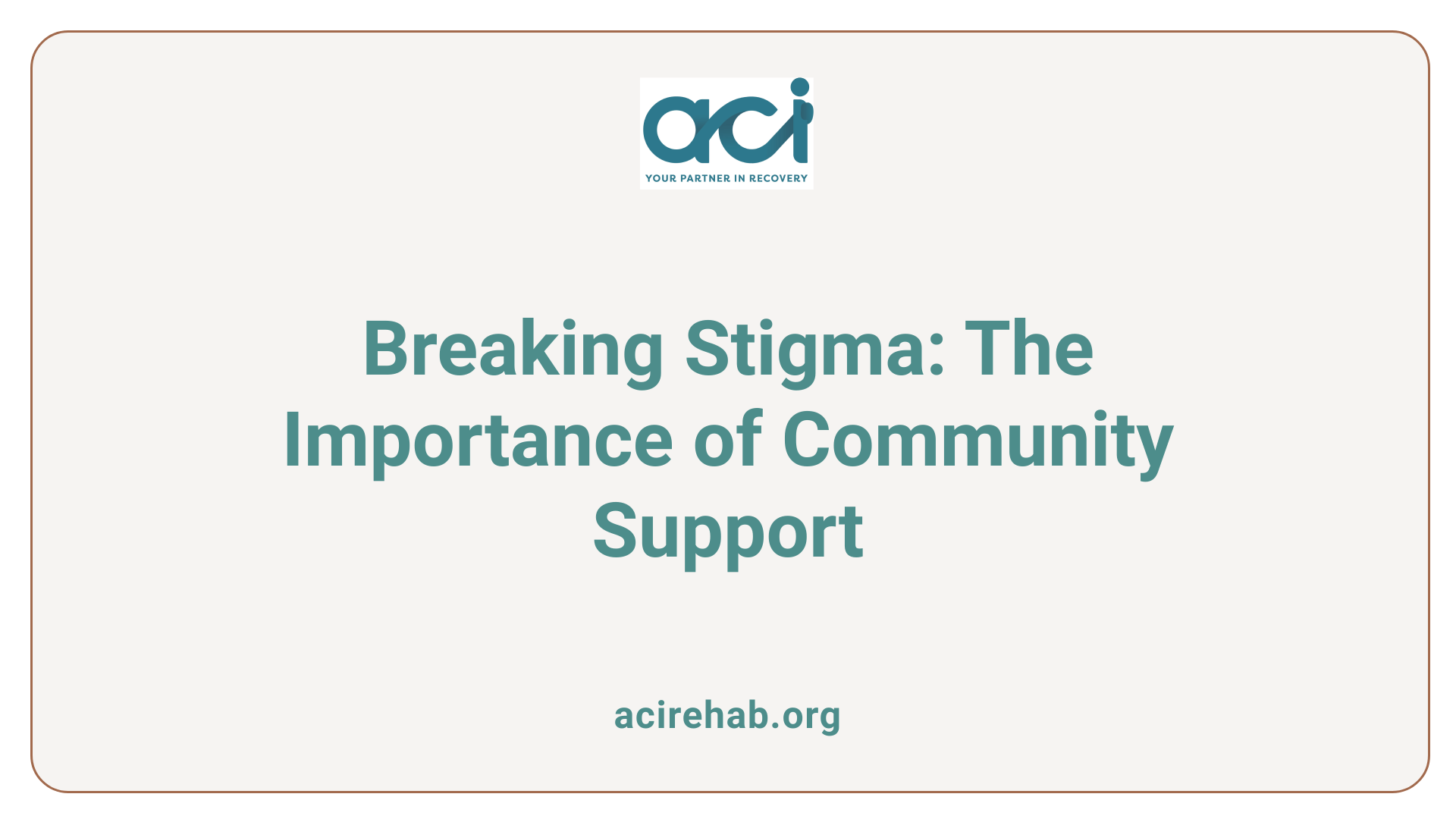
Community Support
Families dealing with addiction often face significant stigma, which can deter them from seeking help. Community support plays a crucial role in navigating this challenge. Programs like Al-Anon and Nar-Anon exist to provide a safe space for families to share experiences and find understanding amongst peers who are facing similar struggles. These support networks can be vital in breaking the cycles of shame and secrecy that commonly accompany addiction.
Overcoming Stigma
To effectively combat stigma associated with addiction, open communication is essential. Families must engage in honest discussions about their experiences, which can demystify the addiction narrative and foster a more supportive environment. Educational initiatives that highlight addiction as a medical condition rather than a moral failing can shift public perception and encourage families to seek help without fear of judgment. Embracing community resources can facilitate recovery not only for the individual but also for the well-being of the entire family unit.
A Call for Greater Awareness and Involvement
Addressing addiction as a family disease requires acknowledging the pervasive impacts on every family member, understanding the roles they play, and providing robust support systems to aid in recovery. Families are not just collateral damage—they are pivotal agents of change who can help dismantle the cycle of addiction. Emphasizing education, breaking down myths, and fostering open communication are essential steps in the shared journey toward healing. With awareness and proactive involvement, families can transform pain into power, contributing to sustainable recovery and healthier dynamics.
References
- Addiction is a Family Disease | St. Luke’s Penn Foundation
- Addiction: A Disease that Affects the Whole Family
- Addiction as a Family Affliction | Psychology Today
- Addiction Is a Family Disease – Rehabs.com
- Facing Addiction as a Family | Hazelden Betty Ford
- Addiction is a Family Disease – 10 Ways It Impacts Loved Ones
- The Impact of Substance Use Disorders on Families and Children
- Addiction is a Family Disease – Caron Treatment Centers
- I Thought Addiction Was My Son’s Problem. But Addiction Is a …
- Addiction is a Family Disease – La Hacienda Treatment Center

